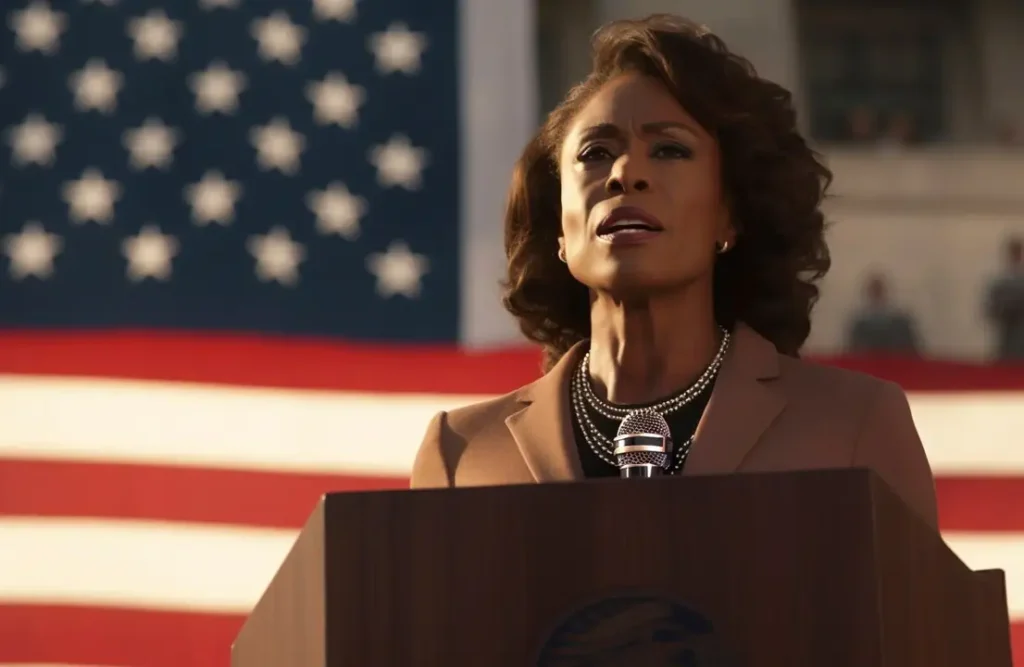Welcome to the ultimate Extraordinary Women quiz! Test your knowledge about remarkable women who have shaped history, science, politics, arts, and society with 30 comprehensive questions. This extraordinary women trivia challenge will take you through the inspiring journeys of female pioneers, leaders, and innovators who broke barriers and changed the world.
Whether you’re passionate about women’s history or discovering these incredible stories for the first time, these carefully crafted questions span pioneering scientists, political leaders, artists, activists, and trailblazers who defied expectations. Discover fascinating facts about women who overcame obstacles to achieve greatness and inspire future generations.
Instructions: Take your time with each question and enjoy detailed explanations that will deepen your knowledge of extraordinary women throughout history. How well do you know these remarkable female leaders and pioneers?
Your Score: 0/30
Your Extraordinary Women Quiz Journey
Pioneers Who Changed Science Forever
This extraordinary women quiz journey began by exploring the revolutionary contributions of female scientists and pioneers who transformed our understanding of the world. Marie Curie’s groundbreaking work in radioactivity not only made her the first woman to win a Nobel Prize but also the first person to win Nobel Prizes in two different scientific fields, paving the way for countless women in STEM.
From Sally Ride breaking the space barrier to become the first American woman astronaut to Rosalind Franklin’s crucial DNA research, these women overcame institutional barriers and gender discrimination to make discoveries that continue to benefit humanity. Their persistence in the face of adversity demonstrates how determination and brilliance can overcome societal limitations.
Political Trailblazers and Civil Rights Champions
The political landscape was forever changed by extraordinary women who refused to accept the status quo. Margaret Thatcher’s leadership as the first female British Prime Minister proved that women could lead nations through complex international challenges, while Rosa Parks’ courageous act of defiance sparked a movement that transformed American society.
Susan B. Anthony’s relentless fight for women’s suffrage and Shirley Chisholm’s groundbreaking congressional career show how individual acts of courage can create systemic change. These women understood that political power was essential for achieving equality and were willing to face imprisonment, ridicule, and threats to secure rights for future generations.
Cultural Icons and Artistic Visionaries
Extraordinary women have shaped culture and consciousness through their artistic contributions and literary achievements. Harper Lee’s “To Kill a Mockingbird” addressed racial injustice through compelling storytelling, while Frida Kahlo’s powerful self-portraits transformed personal pain into universal artistic expression that continues to resonate worldwide.
Toni Morrison’s Nobel Prize-winning literature and Maya Angelou’s autobiographical masterpieces gave voice to experiences that had been marginalized, helping society understand the full complexity of the human experience. These women proved that art and literature could be both beautiful and politically transformative.
Athletic Excellence and Breaking Sports Barriers
In sports, extraordinary women have redefined what’s possible through athletic achievement and advocacy for equal treatment. Serena Williams’ tennis dominance combined with her advocacy for women’s rights in sports exemplifies how athletic excellence can drive social change beyond the playing field.
From Nadia Comaneci’s perfect gymnastics performances to Kathrine Switzer’s determination to run the Boston Marathon despite official attempts to stop her, these athletes proved that women could achieve the same level of excellence as men when given equal opportunities and support.
Business Innovation and Economic Empowerment
The business world has been transformed by extraordinary women who built media empires, revolutionary companies, and philanthropic organizations. Oprah Winfrey’s journey from poverty to becoming the first African American woman billionaire demonstrates how vision, hard work, and authentic connection with audiences can create unprecedented success.
Modern entrepreneurs like Rihanna have revolutionized entire industries by identifying unmet needs and creating inclusive solutions, while tech leaders have shaped how we communicate and share information in the digital age. These women prove that business success and social impact can go hand in hand.
Legacy of Extraordinary Achievement
The extraordinary women featured in this quiz represent different eras, cultures, and fields, yet they share common traits: unwavering determination, willingness to challenge conventions, and commitment to making the world better. Their achievements created pathways for future generations while demonstrating that extraordinary accomplishments are possible regardless of gender.
Whether you achieved a perfect score or discovered inspiring new stories, remember that these women’s legacies continue to influence our world today. Their courage to pursue dreams despite obstacles serves as a reminder that extraordinary achievement comes not from perfection, but from persistence, vision, and the courage to challenge what seems impossible.
Each question in this quiz represents a life dedicated to pushing boundaries and creating positive change, proving that extraordinary women have always been shaping history—we just need to ensure their stories are told, remembered, and celebrated.
Continue Celebrating Extraordinary Women
Congratulations on completing the ultimate Extraordinary Women quiz! Your exploration of pioneering scientists, political leaders, artists, athletes, and business innovators demonstrates the importance of recognizing and celebrating women’s contributions to human progress throughout history.
Whether you’re already familiar with these remarkable women or discovering their stories for the first time, remember that extraordinary women continue to break barriers and change the world today. Their legacies inspire us to pursue our own extraordinary achievements while supporting others in reaching their full potential.
Are you ready to challenge yourself with the ultimate extraordinary women quiz? This comprehensive women in history quiz tests your knowledge of remarkable female pioneers, scientists, leaders, and activists who changed the world. From Nobel Prize winners to civil rights champions, discover the famous women throughout history who broke barriers and inspired generations.
Why Take an Extraordinary Women Quiz?
Women's history quizzes offer more than entertainment—they educate and inspire. Learning about influential women leaders helps us understand how determination and courage can overcome seemingly impossible obstacles. These female pioneers transformed science, politics, arts, and social justice, proving that extraordinary achievements know no gender boundaries.
Science and Medicine: Women Who Changed Everything

Marie Curie: Double Nobel Prize Winner
Marie Curie stands as history's most celebrated female scientist, becoming the first woman to win a Nobel Prize and the only person to win in two different scientific fields. Her groundbreaking research in radioactivity revolutionized atomic physics and chemistry.
Born in Poland in 1867, Curie discovered polonium and radium while facing significant gender discrimination in academia. Her scientific breakthroughs earned her Nobel Prizes in Physics (1903) and Chemistry (1911), establishing her as one of the most influential women in science.
Katherine Johnson: NASA's Mathematical Genius
Katherine Johnson's precise calculations were crucial to NASA's early space missions, including the historic Apollo 11 moon landing. Her mathematical brilliance earned astronauts' trust—John Glenn specifically requested Johnson verify computer calculations for his orbital mission.
This African American mathematician overcame racial and gender barriers to become one of NASA's most important contributors, helping establish America's space program dominance.
Rosalind Franklin: The DNA Pioneer
Rosalind Franklin's X-ray crystallography work provided crucial evidence for DNA's double helix structure. Her famous "Photo 51" fundamentally advanced genetics and molecular biology, though her contributions weren't fully recognized during her lifetime.
Franklin's meticulous research methods set new scientific standards, and her work continues impacting modern medicine and biotechnology.
Political Leadership: Women Who Governed Nations

Margaret Thatcher: Britain's Iron Lady
Margaret Thatcher became the first female Prime Minister of the United Kingdom, serving from 1979-1990. Her strong leadership style earned her the "Iron Lady" nickname while breaking significant gender barriers in politics.
Thatcher's economic reforms and international relations stance demonstrated that women could lead at government's highest levels, inspiring female politicians worldwide.
Eleanor Roosevelt: Human Rights Champion
Eleanor Roosevelt transformed the First Lady role and became a powerful human rights advocate. After President Roosevelt's death, she chaired the UN Commission on Human Rights and helped draft the Universal Declaration of Human Rights.
Her commitment to social justice and women's rights established her as one of the 20th century's most important political figures.
Golda Meir: Israel's Pioneering Prime Minister
Golda Meir served as Israel's fourth Prime Minister (1969-1974), becoming one of the world's first female heads of government. Her leadership during critical periods demonstrated exceptional political skill and national dedication.
Civil Rights Heroes: Women Who Fought for Justice
Rosa Parks: The Civil Rights Mother
Rosa Parks' refusal to give up her bus seat sparked the Montgomery Bus Boycott and became a pivotal Civil Rights Movement moment. Her calculated act of defiance wasn't spontaneous—Parks was a trained activist who understood her actions' potential impact.
Her courage facing arrest and commitment to justice inspired millions and catalyzed the broader civil rights movement.
Sojourner Truth: Abolitionist Orator
Born into slavery as Isabella Baumfree, Sojourner Truth became a powerful voice in abolitionist and women's rights movements. Her famous "Ain't I a Woman?" speech challenged both racial and gender discrimination.
Truth's oratory skills and personal experiences made her an effective human rights advocate, working for abolition, women's suffrage, and prison reform.
Harriet Tubman: Underground Railroad Conductor
Harriet Tubman helped over 300 enslaved people escape to freedom through the Underground Railroad. Her nickname "Moses" reflected her liberator role and deep religious faith guiding dangerous missions into the South.
Beyond the Underground Railroad, Tubman served as a Civil War spy and scout, providing invaluable intelligence to Union forces.
Literary and Artistic Pioneers
Maya Angelou: Voice of Resilience
Maya Angelou's autobiographical masterpiece "I Know Why the Caged Bird Sings" broke new ground in American literature, honestly depicting a young Black woman's experiences in the segregated South.
Her poetic prose and examination of racism, trauma, and resilience resonated worldwide, making her a beloved figure in American literature and civil rights activism.
Virginia Woolf: Literary Revolutionary
Virginia Woolf's innovative writing techniques revolutionized modern literature. Her novels "Mrs. Dalloway" and "To the Lighthouse" employed stream-of-consciousness narratives that influenced generations of writers.
Woolf was also a prominent feminist thinker, writing "A Room of One's Own" which examined women's place in society and literature.
Frida Kahlo: Artistic Icon
Frida Kahlo's distinctive style and powerful self-portraits made her one of history's most recognizable artists. Her work, influenced by Mexican culture and personal experiences with physical pain, challenged conventional artistic boundaries.
Despite childhood polio and a severe bus accident, Kahlo created artwork exploring identity, pain, passion, and Mexican culture that continues inspiring contemporary artists and feminists.
Modern Trailblazers and Global Activists

Malala Yousafzai: Education Advocate
Malala Yousafzai became the youngest Nobel Prize laureate at 17 for promoting girls' education worldwide. Her advocacy began when she spoke against Taliban restrictions on girls' education in Pakistan's Swat Valley.
After surviving a 2012 Taliban assassination attempt, Malala continued international advocacy, inspiring millions with her commitment to education as a human right.
Wangari Maathai: Environmental Warrior
Wangari Maathai founded Kenya's Green Belt Movement, focusing on tree planting, environmental conservation, and women's rights. Her work demonstrated connections between environmental sustainability, democracy, and human rights.
In 2004, Maathai became the first African woman receiving the Nobel Peace Prize for her contributions to sustainable development and peace.
Gloria Steinem: Feminist Icon
Gloria Steinem became one of America's most recognizable feminist movement faces, co-founding Ms. Magazine and advocating for women's rights throughout her career.
Her activism extended beyond women's rights to include civil rights, LGBTQ+ rights, and social justice causes, making her a lasting influence on social justice movements.
Breaking Barriers in Entertainment and Sports
Oprah Winfrey: Media Mogul
Oprah Winfrey transformed television through her authentic interviewing approach and willingness to discuss difficult topics. Her talk show became a cultural phenomenon, and her media empire continues influencing popular culture globally.
Winfrey's journey from poverty to becoming one of media's most powerful women demonstrates talent meeting opportunity and determination.
Serena Williams: Tennis Powerhouse
Serena Williams revolutionized women's tennis with her powerful playing style, winning 23 Grand Slam singles titles while advocating for women's rights and racial equality.
Williams overcame racism, sexism, and health complications while maintaining competitive excellence, making her a global icon and role model.
Billie Jean King: Equality Fighter
Billie Jean King's 1973 "Battle of the Sexes" victory against Bobby Riggs became a defining moment for women's sports and gender equality. Her advocacy for equal prize money transformed professional sports.
King's LGBTQ+ rights activism and courage in coming out during the 1980s demonstrated her commitment to authenticity and equality.
Technology and Innovation Leaders
Ada Lovelace: First Computer Programmer
Ada Lovelace is credited as the world's first computer programmer for her 1840s work on Charles Babbage's Analytical Engine. Her notes included what many consider the first computer algorithm.
Lovelace's mathematical abilities and visionary thinking about computing potential were far ahead of her time, laying conceptual foundations for modern computer science.
Hedy Lamarr: Inventor and Actress
Hedy Lamarr, famous as a Hollywood actress, was also an inventor whose frequency-hopping spread spectrum technology contributed to WiFi, GPS, and Bluetooth development.
Her dual career challenged stereotypes about women's technical capabilities, inspiring future generations to pursue diverse interests.
Quiz Categories and Learning Strategies
Political Leadership Questions
Women in politics quiz questions test knowledge of groundbreaking female politicians who shaped government policies and international relations. Understanding their achievements helps appreciate women's political participation evolution.
Scientific Achievement Questions
Women in science quiz sections focus on female pioneers who made groundbreaking discoveries in chemistry, physics, medicine, and mathematics despite facing institutional exclusion.
Cultural Impact Questions
Women in arts quiz questions explore females who revolutionized literature, visual arts, music, and entertainment while challenging social norms.
Civil Rights Questions
Civil rights quiz sections examine women who fought for equality and social justice, often risking safety and freedom to challenge unjust systems.
Maximizing Your Quiz Experience
To get the most from this extraordinary women quiz, approach each question as a learning opportunity. Consider the historical context surrounding each woman's achievements and obstacles they overcame.
Don't be discouraged by incorrect answers—use them as starting points for further research. Each question represents a story of courage, innovation, and determination deserving deeper exploration.
Building Knowledge Base
Expanding your knowledge of extraordinary women requires diverse learning approaches. Reading biographies, watching documentaries, and exploring online resources can deepen understanding of these remarkable individuals.
Consider creating study groups or discussion forums to share discoveries about different influential women. Collaborative learning leads to richer understanding and maintains enthusiasm for continued exploration.
The Ongoing Impact of Extraordinary Women
The legacy of extraordinary women extends beyond individual achievements. Their collective impact transformed societies, opened opportunities for future generations, and demonstrated unlimited human potential.
This women's history quiz serves as both educational tool and celebration of female achievement throughout history. Whether you score high or low, real value lies in learning about these remarkable individuals and understanding how their contributions continue shaping our world.
The knowledge gained from exploring these women's lives can inspire personal growth, inform advocacy efforts, and contribute to creating a more inclusive society. Their examples demonstrate that with courage, determination, and vision, it's possible to overcome obstacles and create lasting positive change.
Remember this quiz represents just a small sample of countless extraordinary women who made significant contributions throughout history. Every correct answer represents triumph over adversity, and every missed question offers opportunity to discover new inspiring figures deserving recognition.
Test Your Knowledge Today
Ready to challenge yourself with questions about these remarkable women? This extraordinary women quiz will test your knowledge while inspiring you to learn more about the incredible female pioneers who shaped our world. From ancient leaders to modern activists, discover the stories of courage, innovation, and determination that continue inspiring generations worldwide.
Take the quiz and join millions celebrating the achievements of extraordinary women throughout history!
Frequently Asked Questions - Extraordinary Women Quiz
What is the Extraordinary Women Quiz about?
The Extraordinary Women Quiz is an inspiring 30-question trivia challenge celebrating remarkable women who changed the world. It highlights pioneers in science, politics, art, sports, and business — from Marie Curie and Rosa Parks to Serena Williams and Oprah Winfrey.
How many questions are in the Extraordinary Women Quiz?
The quiz includes 30 multiple-choice questions divided into five themed categories:
- Pioneers & Scientists
- Political Leaders & Activists
- Artists & Cultural Icons
- Sports & Achievements
- Business Leaders & Innovators
Each section includes insightful explanations that deepen your understanding of these influential women.
What topics does the quiz cover?
The quiz explores how extraordinary women made history through scientific discoveries, political leadership, civil rights activism, arts, sports, and entrepreneurship. It celebrates innovation, courage, and lasting impact across every field.
How is the quiz scored?
Scores are calculated based on your correct answers out of 30. Levels include:
- 27–30: Outstanding – True expert
- 22–26: Excellent knowledge
- 17–21: Good understanding
- 12–16: Solid foundation
- Below 12: Beginner – room to grow
Your score updates in real time as you progress through the quiz.
Can I retake the Extraordinary Women Quiz?
Yes! You can retake the quiz anytime to improve your score or reinforce what you’ve learned about groundbreaking women throughout history.
What makes these women extraordinary?
These women are extraordinary because they broke barriers, challenged stereotypes, and achieved greatness in male-dominated fields. Their courage, creativity, and leadership continue to inspire progress and equality worldwide.
Is the quiz suitable for all ages?
Absolutely. The Extraordinary Women Quiz is educational, inspiring, and suitable for learners of all ages. It focuses on real achievements and positive female role models.
How long does it take to complete the quiz?
Most participants finish in 15–25 minutes, depending on how long they spend reading the detailed explanations after each question.
What will I learn from this quiz?
You’ll gain knowledge about trailblazing women in science, politics, culture, sports, and business — and discover how their achievements shaped modern history.
Is there a mobile-friendly version?
Yes. The Extraordinary Women Quiz is fully responsive and optimized for mobile, tablet, and desktop devices, ensuring a smooth and engaging experience everywhere.

